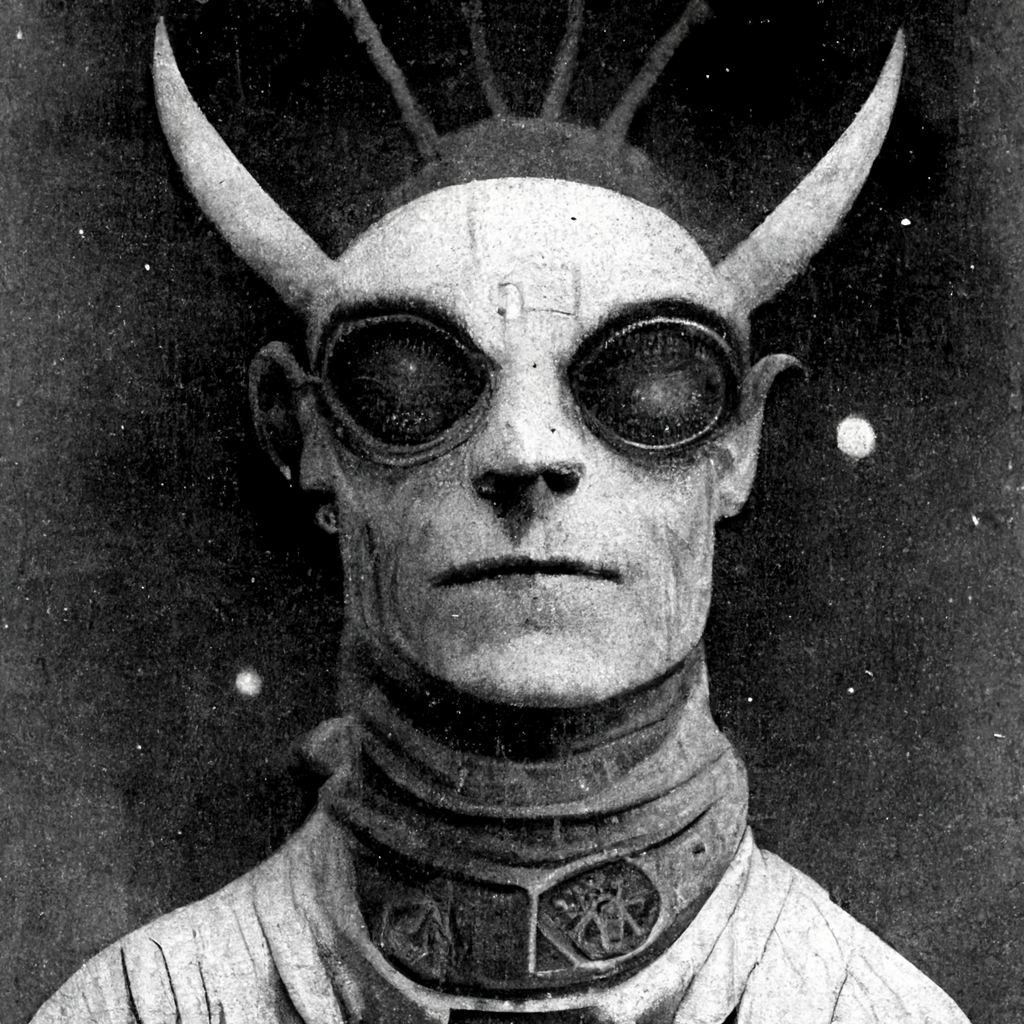BEELZEBUB’S TALES (10)
By:
April 22, 2023

Beelzebub’s Tales to His Grandson (dictated 1924–1927, and thus a work of Radium Age proto-sf, although it wouldn’t see publication until after the author’s death in 1949) is the first section of a never-completed magnum opus to be titled All and Everything. Gurdjieff would later explain that through this work he intended “to destroy, mercilessly, without any compromises whatsoever, in the mentation and feelings of the reader, the beliefs and views, by centuries rooted in him, about everything existing in the world.” HiLoBooks is pleased to serialize a selected excerpt from Beelzebub’s Tales here at HILOBROW.
ALL INSTALLMENTS: 1 | 2 | 3 | 4 | 5 | 6 | 7 | 8 | 9 | 10.
BOOK I
CHAPTER VIII: The impudent brat Hassein, Beelzebub’s grandson, dares to call men “slugs”
Hassein at once sat down at Beelzebub’s feet and coaxingly said:
“Tell me anything you wish, dear Grandfather. Anything you tell will be the greatest joy for me, if only because it is you who are telling it.”
“No,” objected Beelzebub, “you yourself must ask what interests you most of all. It will give me much pleasure to tell you whatever you particularly wish to know about.”
“Well then, dear, kind Grandfather, tell me something about those… what are they called? … I’ve forgotten… Oh yes, about those ‘slugs.'”
“What? About what slugs?” asked Beelzebub, not understanding the question.
“Don’t you remember, Grandfather, a little while ago, when you spoke about the three-centered beings breeding on the various planets of that solar system where you existed for so long, you mentioned that on one planet — I forget what you called it — there exist three-centered beings who are on the whole like us, but whose skin is a little slimier than ours?”
“Aha!” laughed Beelzebub. “You must be asking about those beings who breed on the planet Earth and who call themselves ‘men.'”
“Yes, Grandfather, yes! Tell me about those ‘men-beings.’ I should like to know more about them.”
Then Beelzebub said, “I could tell you a great deal about them, for I often visited that planet and existed among those terrestrial three-brained beings for long periods, and even made friends with many of them.
“It would be very interesting indeed for you to learn more about them, for they are most peculiar. They have many characteristics you would not find in any other beings on any other planet of our Universe.
“I know them well, because the whole course of their arising, their development, and their existence during many, many centuries — by their time calculation — has unfolded before my eyes.
“Not only did their arising and existence take place before my eyes, but even the final formation of their planet itself.
“When we first arrived in that solar system and settled on the planet Mars, nothing existed as yet on the planet Earth, which had not even had time to cool off entirely after its concentration.
“From the very beginning, this planet has been the cause of much concern for our Endlessness.
“If you wish, I will begin by telling you about the events of a general cosmic character connected with this planet that led to the grave concern of our Endlessness.”
“Yes, dear Grandfather,” said Hassein, “do tell me about that. Certainly it will be most interesting, like everything else you tell me.”
RADIUM AGE PROTO-SF: “Radium Age” is Josh Glenn’s name for the nascent sf genre’s c. 1900–1935 era, a period which saw the discovery of radioactivity, i.e., the revelation that matter itself is constantly in movement — a fitting metaphor for the first decades of the 20th century, during which old scientific, religious, political, and social certainties were shattered. More info here.
SERIALIZED BY HILOBOOKS: James Parker’s Cocky the Fox | Annalee Newitz’s “The Great Oxygen Race” | Matthew Battles’s “Imago” | & many more original and reissued novels and stories.
